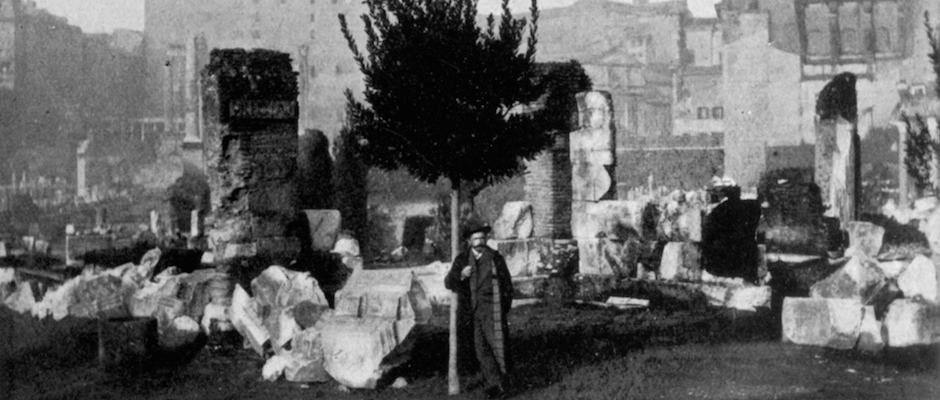Giacomo Boni (Venice, 1859 – Rome, 1925), one of the most famous Italian archaeologists from the 19th and 20th century, distinguished himself from other personalities involved in the study of Antiquities during the post-Unitarian and pre-Fascist era in Italy by his peculiar course of studies and unique personality.

This project is aimed at attaining a better understanding of his formation and his activities in Venice and Rome.
The reappraisal of Giacomo Boni will involve other personalities active in the cultural project of studying the Antiquities that was developed in the Reign of Italy before Fascism.
The advancement in the studies concerning Ruskinian clubs in Italy and the role of intellectuals from pre-Unitarian States (mainly Venice) in building the Reign of Italy supports a reappraisal of Giacomo Boni and his activities both in Venice and Rome. Boni’s character – with the disruptive genius and hard-working personality of a self-taught man resembling his teacher and supporter John Ruskin – offers a new insight on some scientific issues that have traditionally been overlooked by research, e.g. the excavations near the St Mark’s Campanile in Venice, and the ones investigating the origins of the Roman Forum.
Boni’s formation process, innovative approaches to archaeology, and political choices paint a complex figure meeting alternate fortunes, and perhaps never fully accepted and understood, both during his life and afterward.
A major part of this project is devoted to the character of the archaeologist and art historian Eva Tea, analysed under the light of unpublished documentation, and to the collection and study of a selection of press reviews focused on Boni’s excavations in Venice, Rome, and the Palatine.
Scientific coordinator: Andrea Giardina
Scientific supervisor: Myriam Pilutti Namer


